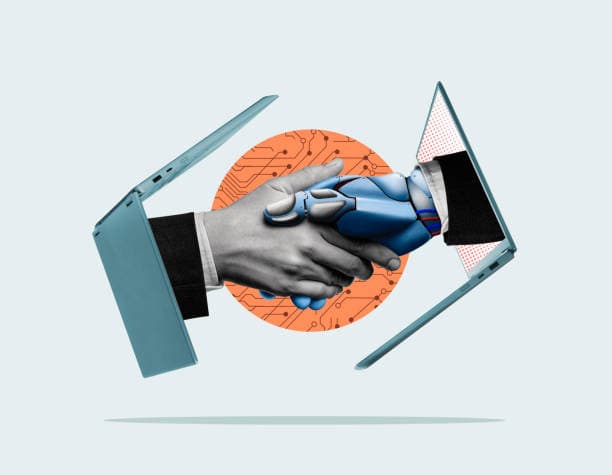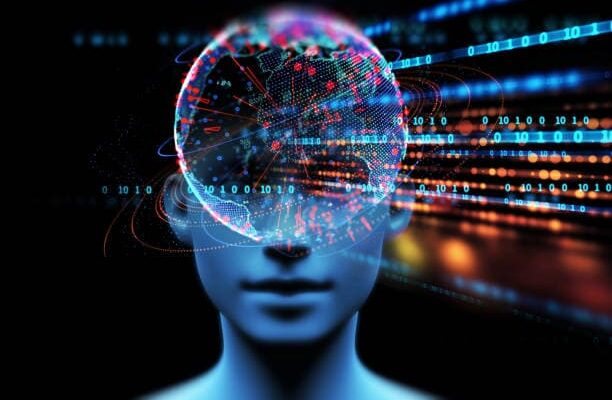Technological advances in artificial intelligence (AI) are the main force behind the massive shift the health care industry is going through. Positioned at the threshold of a revolutionary period, it becomes essential to grasp the ways in which AI is set to transform the delivery of healthcare, the results for patients, and the nature of medical careers. This piece investigates the complex role of AI within the health care domain, examining its present uses, prospective future influences, and the obstacles that must be navigated.
The Present State of Artificial Intelligence in Healthcare
The incorporation of AI into healthcare is markedly enhancing diagnostic processes, patient management, and operational effectiveness. Below is a summary of its ongoing influence.
Diagnostic Excellence
AI algorithms are generally superior to humans in spotting early indicators of cardiovascular & cancer-related illnesses from medical imagery such as MRIs and X-rays. This capacity improves early intervention, raising the success rates of treatment.
Enhanced Patient Care
AI-driven analytics enable therapies customised for each patient’s genetic profiles and health histories, optimizing therapeutic efficiency. This customisation extends to predicting health risks, allowing for preemptive care strategies.
Streamlining Everyday Operations
AI improves healthcare operations through:
- Appointment Scheduling: By streamlining the scheduling process and cutting down on delays, artificial intelligence technologies enhance patient flow.
- Administration of Health Records: By automating the transcription and arrangement of medical documents, natural language processing can help to improve information availability.
- Supply Chain Management: AI predicts equipment and supply needs, ensuring preparedness without overstocking.
The Future Horizon: AI’s Expanding Role
It is projected that as time goes on, AI in healthcare will proliferate, utilising cutting-edge technology to precision, preventive, and predictive medicine. An extensive examination of AI’s potential applications in healthcare may be found below.
Analytics for Predictive
- Forecasting Epidemics: AI simulations are progressively utilized to sift through extensive global health data, trends on social media, and environmental factors to forecast epidemic outbreaks. These AI frameworks use advanced algorithms and real-time data monitoring to detect trends and aberrations that indicate the presence of infectious disease epidemics. So foreseeing power facilitates early alerts, empowering governments and health agencies to strategically deploy resources, enact containment strategies, and may stop illnesses from spreading, saving countless lives.
- Preventive Health Care: The emphasis in health care is shifting towards preempting illness rather than merely treating it. AI’s role in this transformation is crucial, especially through its analysis of data from wearables like fitness bands and smartwatches. These gadgets amass extensive health data, such as heart rate, physical activity, and sleep habits. AI systems carefully examine this data to identify potential health hazards early on. Small variations in heart rate variability, for instance, may indicate possible cardiovascular issues and allow for early treatment before the situation worsens. This move towards anticipatory health care prioritizes prevention, focusing on sustaining overall health and wellness instead of simply reacting to diseases.

Robotic Surgery and Assistance
Robotic surgery is one of the most inventive applications of AI in healthcare. Automata equipped with AI are transforming operations by offering surgeons increased accuracy, adaptability, and command. Directed by AI algorithms, these robotic systems are capable of executing intricate surgeries through smaller cuts, markedly diminishing infection risks and promoting quicker recuperation for patients. The exactness provided by AI-enabled robots proves especially advantageous in sensitive operations, including spinal or brain surgeries, where the margin for error is minimal and the stakes are high.
AI’s role in robotic surgery extends beyond the operating table. Pre-operative planning is another area where AI excels, using patient imaging data to assist surgeons in planning the most successful surgical approach. During surgery, AI can provide real-time data analysis to help the surgeon make decisions.
Artificial Intelligence’s Effect on Healthcare Workers
Augmentation, Not Replacement
AI seeks to enhance the diagnostic, therapeutic, and decision-making capacities of healthcare providers. AI technologies, for example, process patient data to help doctors identify diseases more precisely and provide personalised treatment plans. This tech-based assistance permits medical practitioners to concentrate on the subtleties of patient care, utilizing AI-derived ideas to improve patient outcomes while preserving the invaluable human elements of judgment and compassion.
New Skill Sets and Roles
The rise of AI in health care is creating a demand for new competencies:
- Machine learning and data analysis: Professionals need to be able to understand the principles of machine learning and evaluate the data generated by AI in order to apply AI technologies successfully.
- Digital Health Literacy: Medical professionals need to be adept at utilising electronic medical records, telehealth services, and data from wearable devices as digital tools become more and more important to patient care.
These changes signal a shift towards an additional technologically integrated approach to medical attention, requiring ongoing education and adaptation from professionals. In order to properly use AI’s promise to improve patient care, health care practitioners are expected to integrate their clinical knowledge with data literacy and digital skills.
Navigating the Challenges
Incorporating AI into healthcare brings forth intricate challenges that need resolution for its advantageous & ethical use. These difficulties encompass ethical and privacy issues, the integrity and reach of data, along with regulatory and assimilation difficulties.
Privacy & Ethical Issues
- Eliminating Bias and Promoting Equity: It’s imperative to guarantee that AI algorithms are devoid of biases to prevent the continuation of disparities in healthcare. Maintaining fairness & moral behaviour is crucial.
- Protection and Confidentiality: To ensure patient trust, strict security measures and transparency are required when it comes to protecting patient data when it is being used by AI systems.
Data quality & accessibility
- Data Fragmentation: Disparate patient data across all medical specialties infrastructures impede the efficiency of AI. Addressing these obstacles calls for the standardization of data exchange and the enhancement of system compatibility.
- Fair Accessibility: Guaranteeing that every community has access to healthcare solutions powered by AI is critical to prevent exacerbating current health inequities.
Regulatory and Integration Hurdles
- Adapting Regulations: Matching regulatory structures with the rapid advancements in AI poses a challenge yet is vital for maintaining safety, efficacy, and ethical standards.
- Integration of AI Systems: Organisational culture and technological changes within healthcare institutions are required for the integration of AI into the current healthcare systems.
The Path Forward
The possibility that artificial intelligence may completely transform healthcare is becoming more and more apparent as technology develops. The health sector may attain previously unheard-of levels of precision, efficiency, and patient-centered treatment by integrating AI. However, realizing this potential fully demands a collaborative effort among technologists, medical practitioners, policymakers, and patients to address the challenges head-on. AI has a bright future for healthcare, and smart application of the technology may be the catalyst for the start of a new era in patient care and scientific inquiry.

